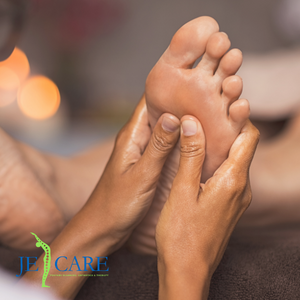
09 Jan All About Soft Tissue Therapy in Essex & Chelmsford
Soft tissue therapy is a form of therapy that is effective for people of all ages, body types, and occupations. Participating in sports or engaging in intense physical activity is unnecessary to benefit from this therapy. Soft tissue therapy can significantly speed up the healing process by lowering your body’s tension and compression stress. When body structures are the focus of a treatment session, they are called “soft tissue.”
The body’s musculoskeletal system is best managed and rehabilitated with soft tissue therapy. Muscles, tendons, and ligaments make up the musculoskeletal system, which is essential to the function and activity of other organs like the immune system, neurological system, facial system, etc.

The phrase “soft tissue injury” is broad. It covers all types of soft tissue injuries. Common forms are sprains, strains, contusions, tendonitis, bursitis, and stress injuries.
Types of Soft Tissue Therapy
Some of the common types of soft tissue therapy in Essex and Chelmsford are:
1. Myofascial release: It involves applying pressure and holding it to stretch the tissue and eliminate any pain and tension by stretching the myofascial.
2. Trigger points: This method seeks to increase the range of motion, reduce local or associated pain, and relax tight muscles.
3. Heat therapy: It includes applying heat to the soft tissue because heat promotes healing by increasing blood flow to the area and eliminating any waste materials that may be causing you pain.
4. Cold therapy: This helps to reduce the area’s excessive swelling and blood flow. The neural pathways for pain can also be blocked by cold therapy.
5. Electrotherapy: It includes ultrasound, interferential stimulation, TENS (Transcutaneous Electrical Nerve Stimulation), NMES (Neuromuscular Electrical Stimulation), and PSWD (Pulsed Short -Wave Diathermy).
Benefits of Soft Tissue Therapy
1. Improves Blood Circulation: For our bodies to recover from pain-causing injuries, fresh, oxygenated blood is necessary.
2. Increases Flexibility: Increases the performance of the muscle, which helps to increase the range of motion, flexibility, and control of the joints. It also helps relax the tense muscles and any disruptions in the tissue.
3. Improves Sleep: Numerous techniques, such as deep tissue massage and neuromuscular therapy, encourage the release of endorphins in our bodies (happy hormones).
4. Reduces Pain: Muscle spasms, trigger points, and restricted motion are common causes of discomfort. Soft tissue therapy helps in releasing the tension, focusing on the trigger points, and enhancing the joint range of motion.
To enjoy the benefits of soft tissue therapy like many others do, book an initial assessment quoting JECB1122 and enjoy £15.00 OFF your first appointment.

